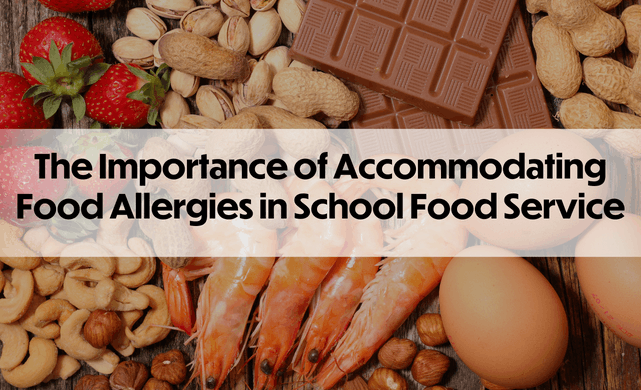Food allergies and sensitivities have become increasingly common in recent years, with millions of children in the United States alone suffering from these conditions. This has significant impacts on the food service programs provided in schools, as schools must begin to consider the dietary restrictions and needs of their students. Today we will examine the impact of food allergies and sensitivities on school food service and the importance of accommodating these conditions in school meal programs.
The Impact of Food Allergies and Sensitivities
Food allergies and sensitivities can range from mild to severe and can cause a variety of symptoms, including itching, swelling, hives, digestive issues, and even anaphylaxis. For children with these conditions, the presence of allergens in food can pose a serious health risk. Therefor it is essential that schools consider the dietary needs of students with food allergies and sensitivities when planning and preparing their meals.
Accommodating Dietary Restrictions in School Food Service
To accommodate the dietary needs of students with food allergies and sensitivities, schools must take a number of steps. This may include providing allergen-free options, such as gluten-free or dairy-free alternatives, labeling food items that contain allergens, and training food service staff on the safe preparation and handling of allergen-free foods. Schools may also need to implement strict allergen control measures, such as separate preparation areas and utensils, to prevent cross-contamination.
In addition to accommodating the needs of students with food allergies and sensitivities, schools must also educate their students and staff about the importance of food allergies and the dangers of cross-contamination. This should include information on reading food labels, avoiding cross-contact with allergens, and what to do in case of a food allergy reaction.
The Benefits of Accommodating Food Allergies and Sensitivities in School Food Service
By accommodating the dietary needs of students with food allergies and sensitivities, schools can create a safe and inclusive environment for all students. This not only promotes the health and well-being of these students, but also helps to reduce the risk of food allergy reactions in the school setting.
By providing allergen-free options, schools can make their food service programs more inclusive and accessible to a wider range of students. This can also have positive impacts on student health and well-being, as students with food allergies and sensitivities are more likely to participate in school meal programs and consume healthier foods when they feel safe and included.
